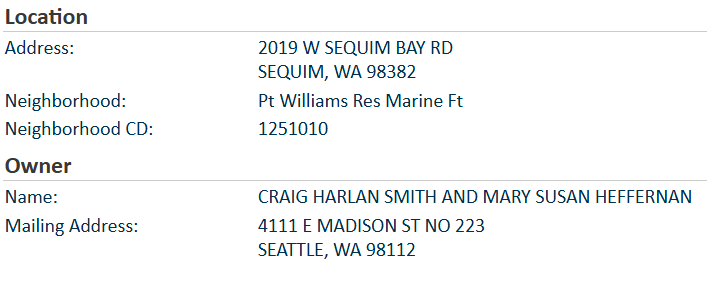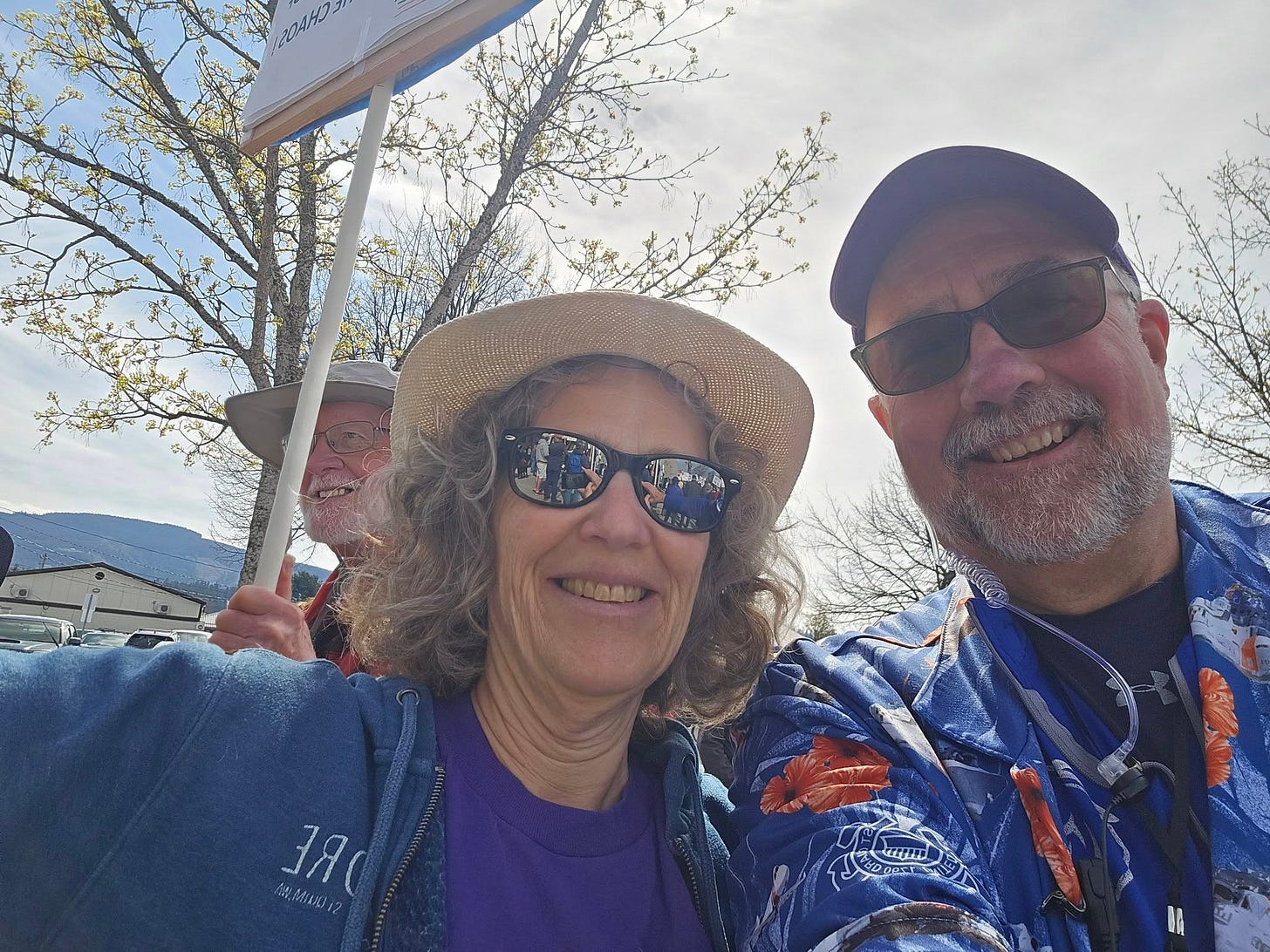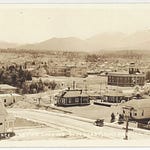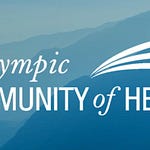A “volunteer” water role is quickly becoming a taxpayer-funded office. Unelected insiders are drafting policy. Public questions are dismissed, critics redirected, and free speech stifled. This isn’t water stewardship—it’s a power grab hiding in plain sight. Clallam County voters deserve to know what’s happening before they lose control of how they’re governed.
The Water Steward Committee, a subcommittee of the Charter Review Commission, convened yesterday. The meeting lasted nearly two and a half hours. Several times, the committee made a concerted effort not to use the word “management.”
Commissioner Ron Richards said to Committee Chair Paul Pickett: “Paul, you just got to get away from ‘management.’ You put it in every chance you get. That’s enough, Paul.”
“We’re trying to sell this to the public,” said Pickett, as he considered stepping away from the term “Office of Water Administration” because it sounds like they are creating a whole bureaucracy. Initially, the idea was presented as a volunteer position, but it has morphed into a paid county position, mandated in the Charter, with support staff that may be funded by an increase in property taxes, cuts to public safety, or both.
The committee is relying mostly on public comments submitted by Tony Corrado (Protect the Peninsula’s Future, Dungeness River Management Team) and Craig Smith (Gates Foundation, North Olympic Land Trust). Those two have already written a draft amendment to the charter.
But despite the committee’s claims that there’s no comprehensive water planning in Clallam County, public commenters strongly refuted that assertion. For instance:
The Jamestown S’Klallam Tribe has an extensive Environmental Planning Program and co-leads the Dungeness River Management Team.
The Tribe has a full-time Water Quality Specialist, Lori DeLorm, who actively monitors and reports on water quantity and quality.
Detailed impact studies have already been conducted by the Tribe and Clallam PUD regarding new wells in Carlsborg and Bobcat Ridge, including the precise number of gallons per day being drawn from streams like Matriotti Creek and Bell Creek, with mitigation paid.
The Sequim Irrigation District now uses half the water it used to, maintains regular reports, and submits data to the Dungeness River Management Team.
The Dungeness Water Exchange, run by the Washington Water Trust, provides data on well mitigation and domestic reserves.
The Clallam Conservation District is supporting aquifer recharge efforts and maintains reports as well.
Clearly, the idea that "none" of these entities are doing comprehensive planning is false. A public commenter pointed out that some “paper” water rights no longer exist because the water hasn’t been put to beneficial use in five years, and that many post-2013 wells south of Highway 101 are already restricted under the so-called “Yellow Area.” In other words, the planning is not only being done—it’s being enforced.
Public influence repackaged as “private opinion”
At the May 27th Charter Review Commission meeting, it was pointed out that although the committee says the Water Steward position would be non-regulatory, Tony Corrado and Craig Smith had previously written an op-ed in the Sequim Gazette supporting “necessary regulatory modifications.” Chair Paul Pickett dismissed that as merely “an opinion of someone in the public,” without acknowledging that those same individuals are now guiding the committee's language and direction.
Commissioner Nina Sarmiento even said, “I think for the sake of time, we should work off of what Tony has written.” In practice, it appears Tony Corrado and Craig Smith have become de facto advisors to the Water Steward Committee—exerting major influence without any formal appointment, public oversight, or accountability.
“We have been very clear that it will be non-regulatory,” said Pickett—despite their own consultants' published calls for regulation.

When asked whether the Water Steward Committee had landed on a funding mechanism, Pickett denied that funding had been discussed. But when reminded that the committee had in fact debated whether to use property tax hikes or cuts to public safety, he clarified: it had been discussed, but not decided.
When asked why this Water Steward position should be embedded in the county charter—rather than created organically through public process—Pickett responded that the position is “critical to the county” and that issues of water are “sufficiently important.”
When asked if other Washington state counties have a Water Steward position, Sarmiento said, “They do.” But when pressed on which counties, she admitted: “There isn’t a position called ‘Water Steward’ — There’s all different kinds of manifestations of studying water availability.”
In other words, this is not a proven model. It’s a vaguely defined role with no clear precedent, being pushed by insiders without voter consent. Clallam County, one of the most economically depressed in the state, would be the first to pilot (and fund) the Water Steward position.
Proposed transparency amendment meets opposition
Commissioner Ron Richards has proposed a simple charter amendment that would require the county to respond to requests for information from the Bureau of Indian Affairs—specifically, when the BIA asks about the impact of removing land from the tax rolls and placing it into federal trust.
It’s a routine transparency measure. Yet Commissioner Sarmiento opposed the amendment, reasoning: “It may inhibit the tribes out here from being able to advocate for their culture.”
So, a requirement for the county to answer a federal agency is now deemed culturally threatening? This is exactly the kind of confusion and mission creep that turns common-sense accountability into political theater.
Disrespect for the public disguised as respect
At the May 27th meeting of the full Charter Review Commission, Commissioner Jim Stoffer turned to the gallery and reprimanded the audience:
“We’re doing work in front of you. I ask for your respect and understanding of that because that’s what we’re doing, we’re working in front of you.”
He continued:
“Give me the opportunity for me to fulfill my oath that I took with the county.”
It was unclear why the audience deserved the reprimand. Under Robert’s Rules of Order, that kind of scolding is the responsibility of the Chair—Susan Fisch. She not only failed to step in, but allowed the direct lecture from her friend and fellow commissioner.
Later, during public comment—when citizens are supposed to be able to freely address their representatives—criticism was aimed at Commissioner Stoffer over his role in the survey and its biased wording. Chair Fisch interrupted to state:
“You are to address your comments to the commission.”
This rule had never been enforced before. It doesn’t exist in the bylaws. It’s not part of Robert’s Rules. It appears to have been made up on the spot—yet another tool to silence dissent and protect insiders.

Voters should be very concerned
This is how government overreach begins: a vaguely defined “volunteer” role quietly morphs into a taxpayer-funded county office. A pair of unelected insiders draft the language. Critics are silenced, public concern is brushed aside, and what’s sold to voters as “non-regulatory” smells a lot like regulation in disguise.
Yes, water matters. But so do honesty, transparency, and public trust—not to mention your First Amendment right to speak freely and confront your government directly. That may be uncomfortable for Commissioners Fisch and Stoffer, but discomfort is not a license to silence.
The Water Steward Committee and the Charter Review Commission are rapidly burning through every one of those values.
And if voters don’t speak up soon, the cost won’t just be higher property taxes. It’ll be the loss of public control over how Clallam County is governed—replaced by a charter written behind closed doors, for agendas never put to a vote.
The Charter Review Commission will meet next Monday, June 9, at 5:30 PM at the courthouse in Port Angeles. Survey results will be discussed. Click here for instructions on in-person or virtual attendance.











